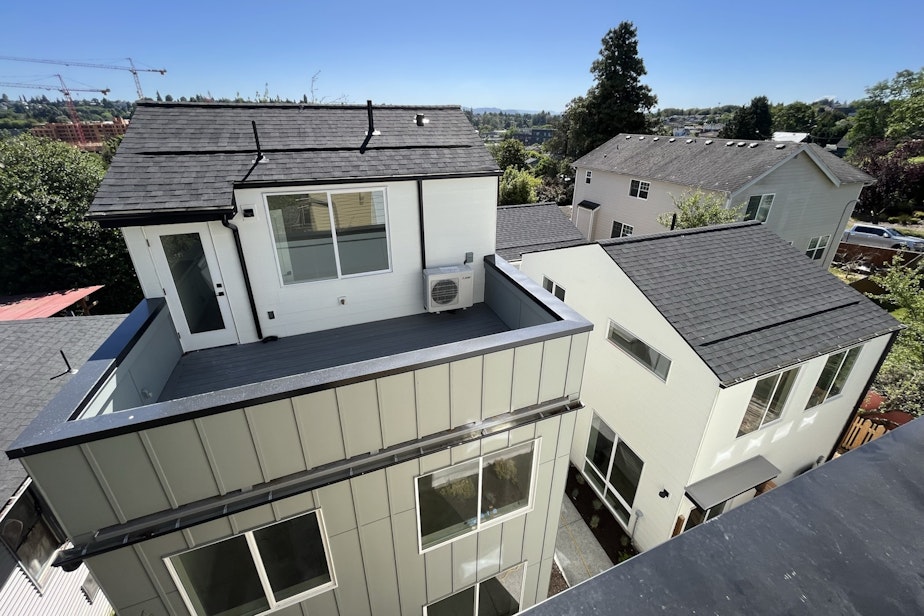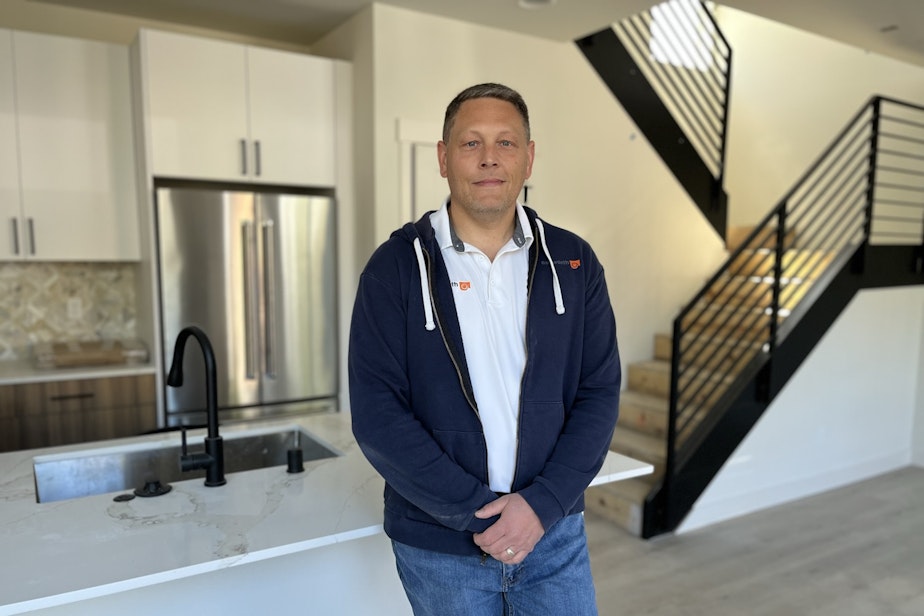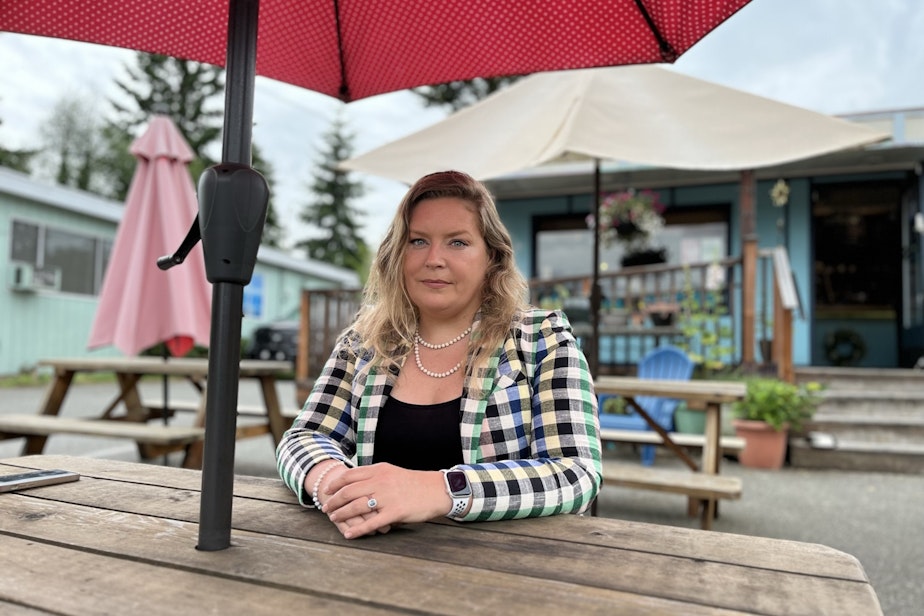New Washington law could make condos less expensive, but are buyers less protected?

Everybody wants housing they can afford.
Lawmakers have tried many strategies to give that to people. One is to bring the cost of homes down by reducing the price developers pay for things like insurance.
A new bill that went into effect this week aims to do that.
But not everyone’s happy about it.
Erich Armbruster is a developer. He’s building a six-unit condo project on Beacon Hill.
His crew is almost done. Now, they’re combing the homes for little areas that need a final touch-up.
"So this is what we call the punch-out phase. So, all the little things that need to be pulled together," he explained. "It’s pretty time intensive, but it’s the way you deliver a good product."
Armbruster's project looks like a townhome, and it is: It's a home occupying several floors, with no one living above you or below you.
But it's also a condominium, with a homeowner's association (dues are around $35 a month) to govern management of common spaces. "Condominium" refers to the legal structure by which the property is divided and managed.
Sponsored
Condominiums are a little cheaper to build than other forms of housing, which means they can sell for a little less.
Historically, this has made condos good for first-time homebuyers.

“On a condo development, we’re allowed to use one utility connection," Armbruster said. "So one water meter to serve all the homes on a site, which is a benefit over, this same project would require six water meters if it were a unit lot subdivision or a townhouse development.”
Another thing is condos have more relaxed rules about how you can use the site.
Sponsored
Armbruster said the technical advantages of building condos add up. Sometimes he can save over half a million dollars on a condo project over a traditional townhome project. But those savings are partially eroded by the extra cost of liability insurance.
Until recently, Armbruster’s insurance company wouldn’t even let him build condos. That's because it’s been very easy to sue condo developers in Washington state.
Sponsored
A wave of condos built in the 1980s included many poorly built projects. Many were leaky and moldy.
Lawsuits in the 1990s nearly drove new condos to extinction. The lawsuits didn’t ease up, even after construction practices improved.
Since the early 2000s, state lawmakers have been tinkering with the rules, trying to bring condos back while avoiding the construction issues of the past. One of the biggest changes came during this year’s legislative session.
Democratic Sen. Sharon Shewmake of Bellingham sponsored a bill, now a law, aimed at making condos more abundant and affordable.
Sponsored
“One of the things that I was hearing from the builders, and you know, and there’s two sides to all of these stories, is that they would be sued for minor defects," Shewmake said. As an example, she described a situation where a building's cladding was supposed to be a certain thickness or spacing, but the built measurement was off by a little bit.
The new law gives developers the “right to cure” problems like that.
“So instead of being sued, and having the insurance money pay out to the homeowners association, they could go back and fix all of that stuff,” Shewmake explained.
Sen. Chris Gildon, a Puyallup Republican, signed on to the bill.
“I think a part of it is meant to reduce some of that risk and incentivize construction of affordable condos," Gildon said. "I think as you know, pretty much all of the condo market that we have today is for the luxury condos. And the market for affordable condos is non-existent. And a lot of that has to do with risk of building for the builder.”
Sponsored
The reason is that, while some insurance companies have become more open to condo developments, premiums are still high. As a result, it tends to be higher end or luxury condos that can afford those premiums.
Related: Why are condos in Seattle so rare and expensive?
But where developers see limiting liability as a win, some homeowners see a loss of accountability.

Sarah Schacht is a homeowner who testified against the bill. Her partner bought a new townhome condominium in 2014.
Later, the two of them began discovering problems with the roof deck.
“The membranes weren’t installed correctly, the decking was installed too close to the membranes, which impacts drainage," Schacht explained. "They used green wood on the deck, so it never held a stain and it started breaking apart almost immediately.”
Waterproofing (flashing) around the windows was done incorrectly, and had to be replaced.
Other condos on the property had water leaking into their ceilings and walls, creating mold. One of the units actually grew a mushroom, Schacht said.
“There was a lot that had to be fixed, for our homes to become whole, sound, safe homes,” she said.
Her home was made sound, but it took a legal settlement for her to get the fixes paid for.
Schacht's lawyer, Chris Casey, cautioned people against reforming condo laws without fully considering the consequences.
“And the whole ballyhoo about 'too much construction defect litigation,' well, it’s the only reason why we have buildings that are built as well as they’re built today," Casey said. "And they’re not perfect. But they’re better than they used to be.”
He thinks the law should provide more protections for homeowners, rather than fewer. He said now he won’t be able to ask for as much in settlement negotiations, which brings us back to that new law limiting developers’ liability for building condos.
It may be another decade before we know whether it brings the cost of homes for consumers down. That’s because insurance companies are unlikely to lower rates until the homes being built today have survived their seventh birthday without being involved in a lawsuit.
EDITOR'S NOTE: The original radio story audio has been updated to more accurately describe the problems with Schacht's home.



